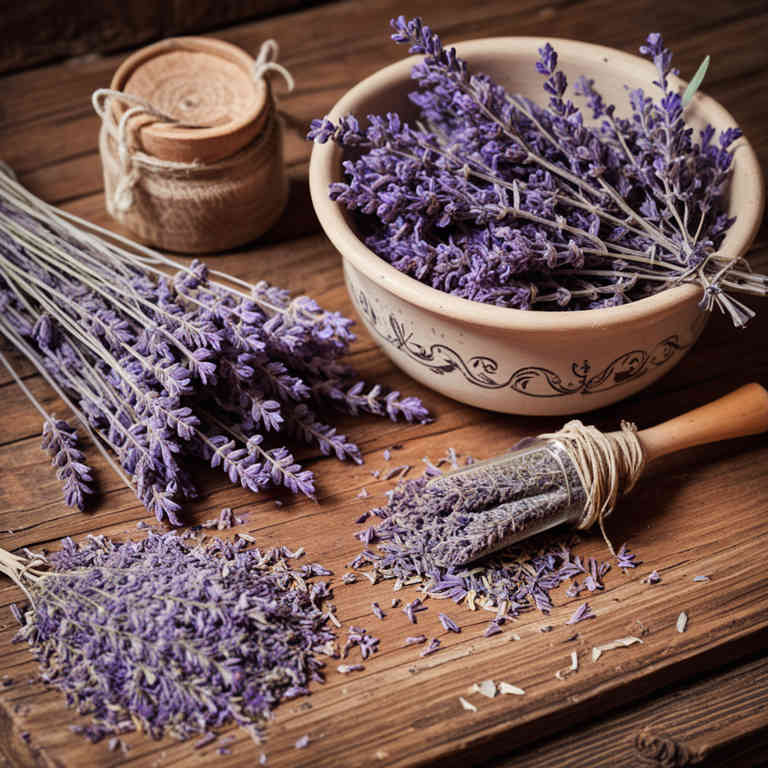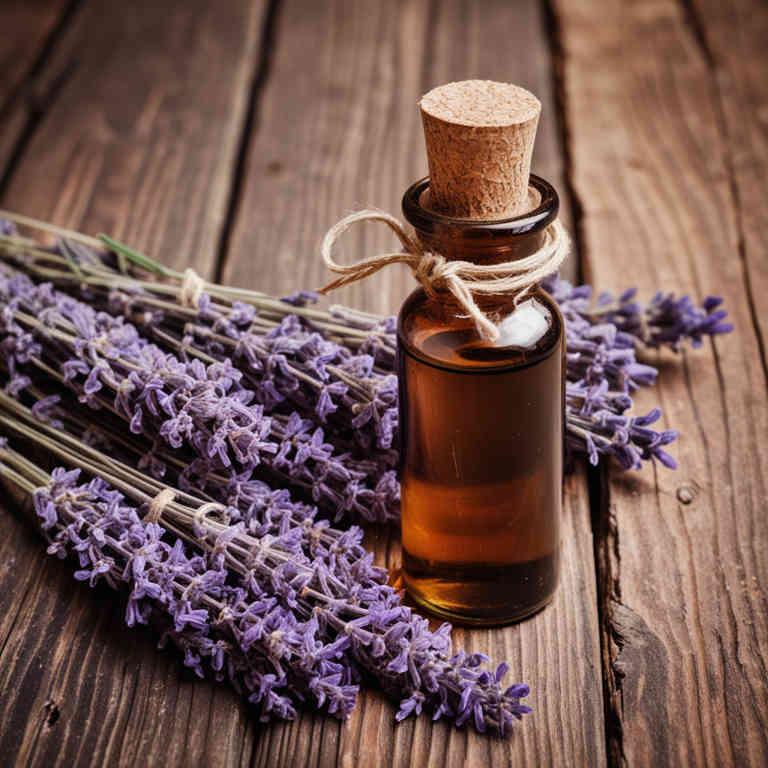10 Best Lavandula Angustifolia Preparations

The best medicinal preparations of Lavandula angustifolia are teas, tinctures, essential oils, oils, and decoctions, each offering unique therapeutic benefits.
Lavender tea is commonly used to promote relaxation and ease digestion, while tinctures provide a concentrated form for addressing anxiety and insomnia.
Essential oils derived from lavender are widely used in aromatherapy to reduce stress and improve mood.
Carrier oils infused with lavender are applied topically to soothe skin irritations and promote healing.
Decoctions, made by simmering the herb, are valued for their calming properties and support in treating respiratory and nervous system ailments.
Below there's a list of the 10 best herbal preparations of lavandula angustifolia for medicinal purposes.
1. Teas

Lavandula angustifolia teas is commonly used to promote relaxation, alleviate stress, and improve sleep quality.
This herbal preparation is often employed to treat ailments such as anxiety, insomnia, and mild skin irritations. The bioactive constituents responsible for its medicinal properties include lavender essential oils, flavonoids, and terpenes. These compounds possess calming, anti-inflammatory, and antimicrobial effects.
Lavender tea is also used to soothe digestive issues and reduce headaches.
2. Tinctures

Lavandula angustifolia tinctures is commonly used to treat anxiety, insomnia, and skin irritations due to their calming and antiseptic properties.
These tinctures are widely utilized for their ability to alleviate symptoms of stress and promote relaxation, making them popular in aromatherapy and complementary medicine. They are also applied topically to soothe minor burns, insect bites, and eczema. The bioactive constituents responsible for these effects include linalool, linalyl acetate, camphor, and terpenoids, which have anti-inflammatory, antimicrobial, and sedative properties.
Additionally, the presence of flavonoids contributes to its antioxidant and neuroprotective benefits.
4. Oils
Lavandula angustifolia oils is commonly used to treat a variety of ailments, including skin irritations, anxiety, and insomnia.
These oils are widely recognized for their calming and soothing effects, making them popular in aromatherapy and topical applications. The most common medicinal uses include缓解 inflammation, promoting relaxation, and alleviating symptoms of stress and headaches. The bioactive constituents responsible for these effects include linalool, linalyl acetate, and camphor, which possess antimicrobial, anti-inflammatory, and sedative properties.
These compounds work together to provide the therapeutic benefits associated with lavender oil.
5. Decoctions
Lavandula angustifolia decoctions is commonly used to treat a variety of ailments, including anxiety, insomnia, skin irritations, and digestive issues.
These decoctions are often prepared by boiling the dried flowers and leaves of the plant in water to extract their active components. The most common medicinal uses include alleviating symptoms of stress, promoting relaxation, and reducing inflammation. They are also used topically to soothe burns, eczema, and insect bites.
The bioactive constituents responsible for these effects include essential oils like linalool and linalyl acetate, as well as flavonoids and terpenes, which have calming, anti-inflammatory, and antimicrobial properties.
6. Creams

Lavandula angustifolia creams is commonly used to alleviate symptoms of skin irritations, such as eczema, psoriasis, and minor burns.
These creams are also used to reduce inflammation, soothe muscle aches, and promote relaxation due to the calming effects of lavender. The most common medicinal uses include treating acne, insect bites, and stress-related skin conditions. Lavender creams are also applied topically to ease symptoms of anxiety and improve sleep quality.
The bioactive constituents responsible for these effects include linalool, linalyl acetate, camphor, and flavonoids, which possess anti-inflammatory, antimicrobial, and sedative properties.
7. Capsules
Lavandula angustifolia capsules is commonly used to alleviate symptoms of anxiety, insomnia, and stress-related disorders.
They are also utilized for their anti-inflammatory and antiseptic properties, making them effective in treating skin conditions and minor wounds. The most common medicinal uses include managing mild depression, reducing menstrual cramps, and easing symptoms of digestive issues like irritable bowel syndrome. Bioactive constituents such as linalool, lavandins, and camphor contribute to its calming, analgesic, and antimicrobial effects.
These compounds work synergistically to provide the therapeutic benefits associated with lavender oil in capsule form.
8. Lozenges
Lavandula angustifolia lozenges is commonly used to alleviate symptoms of respiratory tract infections, sore throat, and cough.
These lozenges are often employed to treat ailments such as colds, flu, and inflammatory conditions of the throat. The bioactive constituents responsible for their medicinal properties include essential oils like linalool and linalyl acetate, as well as flavonoids and terpenes. These compounds possess antimicrobial, anti-inflammatory, and calming effects.
Lavandula angustifolia lozenges are also believed to help reduce stress and promote relaxation due to their soothing aroma and mild sedative properties.
9. Oinments
Lavandula angustifolia oinments is commonly used to treat skin irritations, wounds, and inflammatory conditions due to their soothing and antimicrobial properties.
These ointments are frequently applied for ailments such as eczema, psoriasis, burns, and insect bites. The bioactive constituents responsible for these effects include lavandins, which are a combination of linalool and linalyl acetate, as well as other compounds like camphor, borneol, and flavonoids. These components possess anti-inflammatory, antiseptic, and analgesic properties that contribute to the healing process.
Additionally, the calming aroma of lavender in the ointment can help reduce stress and promote relaxation.
10. Syrups
Lavandula angustifolia syrups is commonly used to alleviate symptoms of respiratory conditions, such as coughs, sore throats, and bronchitis, due to its soothing and anti-inflammatory properties.
These syrups are also used to treat anxiety, insomnia, and mild depression, as lavender is known for its calming effects on the nervous system. The most common medicinal uses include relieving stress, improving sleep quality, and reducing inflammation in the respiratory tract. The bioactive constituents responsible for these effects include linalool, linalyl acetate, and camphor, which have antispasmodic, sedative, and antimicrobial properties.
Additionally, flavonoids and terpenes contribute to its antioxidant and anti-inflammatory benefits.